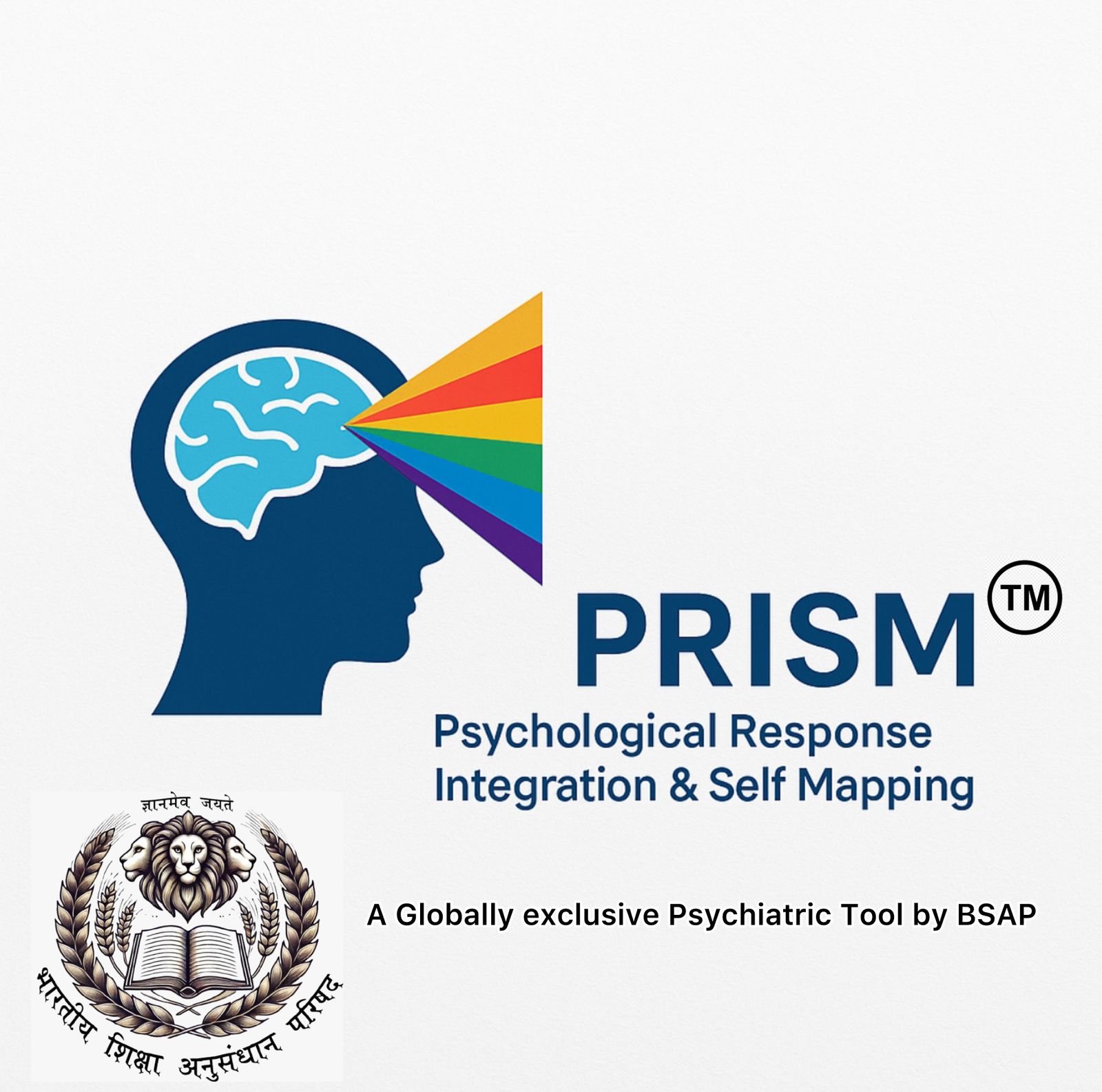Lucknow, April 7
In a groundbreaking move in the field of psychological development and national service, the innovative PRISM system (Psychological Response Integration & Self Mapping) was officially presented to the world at a special event in Lucknow. The event saw participation from notable educationists, defence psychologists, thinkers, and experts from multiple domains—all sharing a vision for psychologically empowered citizens and future leaders.
The PRISM Model
PRISM introduces a transformative approach to understanding human personality across all age groups. Built on 24 specialized traits called CORE (Cognitive-Operational Response Elements), the framework enables structured personality analysis. The system utilizes new-generation tools such as SAMVAD (Subconscious Activation Mapping via Verbal Associative Dynamics), DRISHTIKON (Dynamic Reflection of Imagination, Storytelling, Thinking, and Inner Konnection), and PRATI-PRATI (Practical Response Analysis of Traits in Intense-Paced Realistic Action Triggered Incidents). These methods are modernized alternatives to traditional psychological tests, and represent a contemporary evolution of the systems initially developed by DIPR (Defence Institute of Psychological Research) under DRDO (Defence Research and Development Organisation).
Visionary Behind PRISM – Wing Commander Pushkal Vijay Dwivedi
At the heart of the PRISM initiative stands Wing Commander Pushkal Vijay Dwivedi (Retd), currently serving as Director General of BSAP (Bhartiya Shiksha Anusandhan Parishad). Wing Commander Dwivedi brings vast experience from his tenure in the Indian Air Force, where he led initiatives in defence strategy, technological integration, and psychological operations. His work extends beyond military life—playing a key role in spiritual-cultural service through Kalki Sena, driving social transformation via journalism, and engaging in international advocacy through his position in the UN Global Human Rights Tribunal (UNGHRT). Wing Commander Pushkal Dwivedi studied Applied & Cognitive Behavioural Psychology from Achology & Yale University, USA.

National & Global Recognition
In 2025, Wing Commander Dwivedi was ranked among India’s Top 10 Innovators by DNA and other international institutions tracking innovation. He is also credited for inventing the Vijay Tool, a cipher-based AI model which evolved through four distinct versions over a period of 12 years. The PRISM platform is the latest milestone in his journey of building systems for security, education, and social reform.
Profession-Based Trait Mapping
One of the most significant achievements within PRISM is its profession-aligned categorization of CORE traits. This psychological mapping has been customized for roles like Armed Forces Officers, Doctors, IAS Officers, Engineers, Scientists, Politicians, and others. For the first time in India, a system has emerged that aligns mental and emotional qualities with vocational suitability. It empowers educational bodies, civil service panels, and recruiters to evaluate individuals based not just on credentials, but also on ethical aptitude and decision-making ability.
Usability Across Ages and Sectors
What sets PRISM apart is its age-neutral adaptability. Whether in school environments or corporate boardrooms, the framework can be used to analyze and guide human potential. Companies can use it to enhance workforce efficiency and leadership; schools can integrate it into child development. For hiring purposes, PRISM evaluates mental resilience, purpose, and morality—offering far more depth than traditional interviews.

Built by Experts, For the Nation
The PRISM system was developed under the guidance of Wing Commander Dwivedi with the support of highly experienced defence psychologists trained at DIPR. With this expert foundation, PRISM stands as a globally competitive, culturally rooted, and scientifically sound personality assessment model.
A New Era Begins
The event concluded with a formal pledge to implement PRISM across educational, military, and national institutions. With its launch, India takes a significant step toward psychological empowerment—where purpose meets insight, and science meets service.


